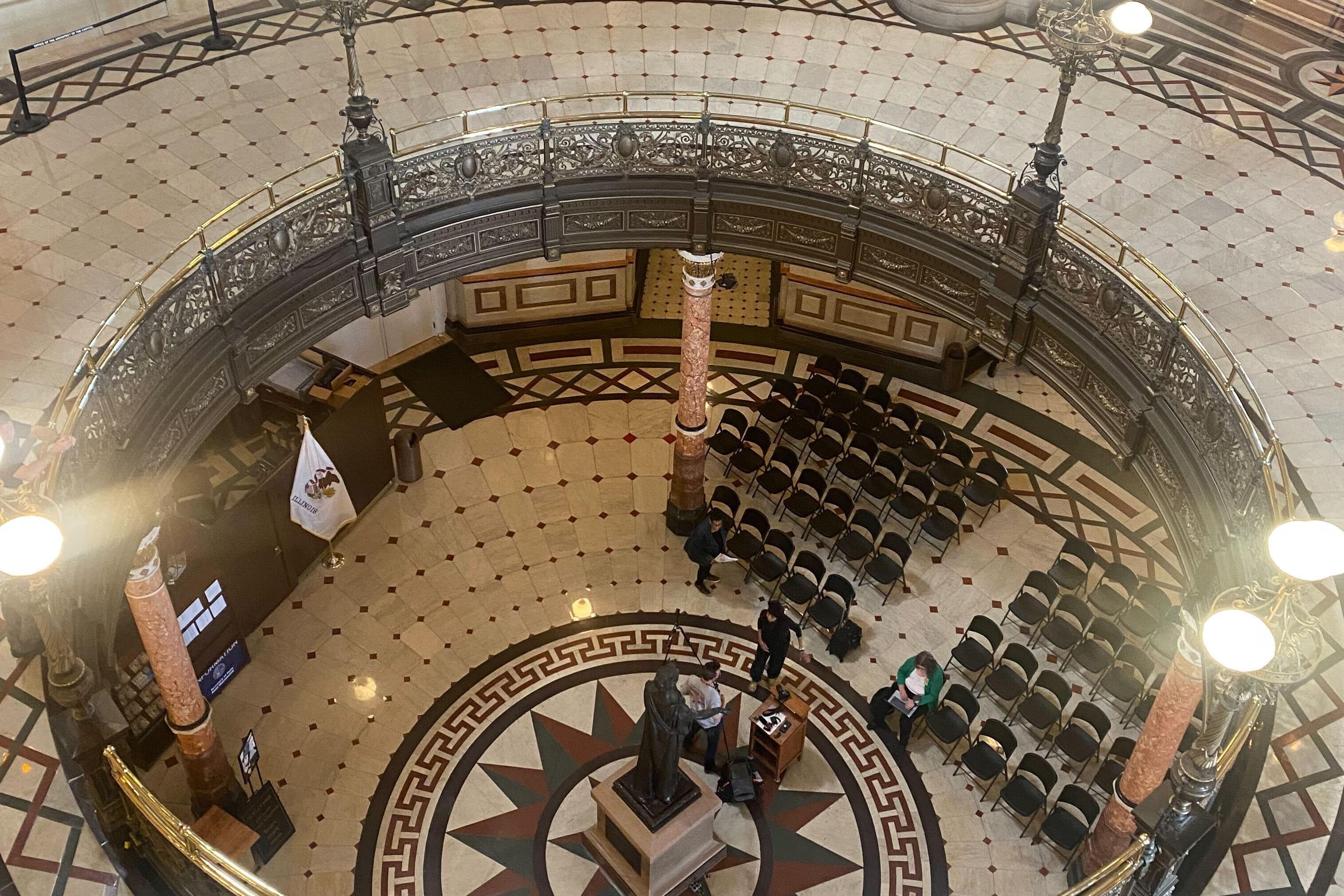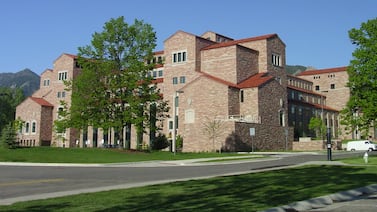How Chicago school board members will be elected one year from now is still in limbo after Illinois lawmakers couldn’t agree on the details of the transition this week.
But lawmakers in both chambers appeared to agree on the third draft of an electoral map dividing Chicago into 20 districts. That map has seven majority Black districts, six where Latinos make up 50% or more of the population, and five where the population is 50% or more white.
However, they could not agree before adjourning their fall veto session on how elections would happen in 2024 and 2026 in order to transition to a fully-elected school board.
The state legislature is scheduled to meet again in mid-January.
According to a 2021 law — and its subsequent trailer bill — 10 school board members are to be elected on Nov. 5, 2024 from 10 geographic districts. The mayor would appoint a school board president and 10 members from those same districts. In November 2026, the appointed seats would be elected and a school board president would be chosen by all Chicago voters.
By January 2027, Chicago will have a 21-member fully-elected school board. The shift comes after three decades of mayoral control over Chicago Public Schools.
Lawmakers were supposed to divide the city into electoral districts by July 1, 2023, but gave themselves an extension in May to get the maps drawn by April 1, 2024. Many lawmakers and advocates hoped to define the map and how school board elections would roll out during this week’s veto session.
“By Senate standards, we are years ahead of schedule by being months ahead of schedule,” said Senate President Don Harmon, before the chamber voted 38-12 to approve a plan he put forward earlier this week to have all 20 districts vote right away, leaving only the board president up for mayoral appointment.
Under that plan, Mayor Brandon Johnson would lose the power to appoint 10 members and keep control via a hybrid Board of Education with 11 mayoral appointees.
“I am very hopeful that when all is said and done, this will be the law in Illinois, and we will have a fully elected school board after November of 2024,” Harmon said.
But lawmakers in the House passed a different proposal that would more closely aligns with the current law. It would pair up the 20 districts and result in 10 elected school board members and 10 appointed by the mayor from each pairing of districts. A school board president would be appointed by the mayor in 2024 and elected at-large in 2026.
“This has been a decade-long project, and is the product of years of advocacy and quite literally years of negotiation discussion with stakeholders, community members, leadership, elected officials, so it’s not surprising that it’s not an easy thing to implement,” said State Rep. Ann Williams, who chairs the House Democrats’ Chicago Public Schools Districting Working Group.
Williams said Harmon’s proposal to go to a fully-elected board and eliminate the hybrid period when the mayor would still maintain control by appointing 11 of 21 members was a surprise Wednesday.
“Opening up the bill again with only a day or so left in the veto session was a difficult prospect and created a lot of complications in the conversation,” Williams said. “I don’t think it’s something we could have done in just one day.”
Johnson said he was “very much committed” to the bill that passed in 2021 that would allow him to appoint half the school board in 2024. He also noted there are financial entanglements between the city and CPS that need to be “worked through.”
“This is going to be a tremendous adjustment for the people of Chicago and adjusting in a way that provides confidence in a new body of government is something that we have to take into real serious consideration,” Johnson said. “What we don’t want is to set individuals up with expectations that cannot be met.”
Harmon said Wednesday he would not call the House version for a vote in the Senate because it had “woefully inadequate ethical provisions” and “opens the door for corruption” by exempting future Chicago school board members from state law governing conflicts of interest for public officials, including school board members, throughout the rest of the state. The House, however, passed a bill Thursday afternoon agreeing to the Senate’s ethics provisions.
Senate Democrats initially proposed having voters in only 10 of 20 districts cast a ballot for a school board representative in 2024. That was met with criticism from advocates who said it would disenfranchise half of the city by making them wait until 2026 to have a say in who is elected to the school board.
In a statement Wednesday night, the Chicago Teachers Union said Harmon’s proposed changes could “delay and deny the democracy Chicago so desperately needs and deserves.” The union has been fighting for an elected school board in Chicago since 2013 and supports the House version.
Hal Woods, chief of policy for Kids First Chicago, said waiting until January or the April 1 deadline to finalize the details of school board elections will leave potential candidates less time to run and voters less time to decide on who to support.
Corrina Demma, an organizer for the nonprofit Educators for Excellence-Chicago, echoed those concerns.
“It gives us so little time to learn anything about these candidates, and get to know them,” Demma said.
“We’re on a budget cliff with the COVID funds running out,” she added. “There’s a lot of big decisions that are gonna have to be made that will affect all Chicago’s children and families. And who’s going to be making those decisions? How do we know if they’re gonna be qualified, if they have any lived experience, and can make choices that are best for the communities that they’re a part of?”
Demma said she wished lawmakers had also taken up the issue of compensating board members. State law currently prohibits school board members from being paid.
Lawmakers did also appear to agree on requiring the Chicago Board of Education to create a Black Student Achievement Committee that would focus on improving academic achievement for Black students.
Becky Vevea is the bureau chief for Chalkbeat Chicago. Contact Becky at bvevea@chalkbeat.org.






